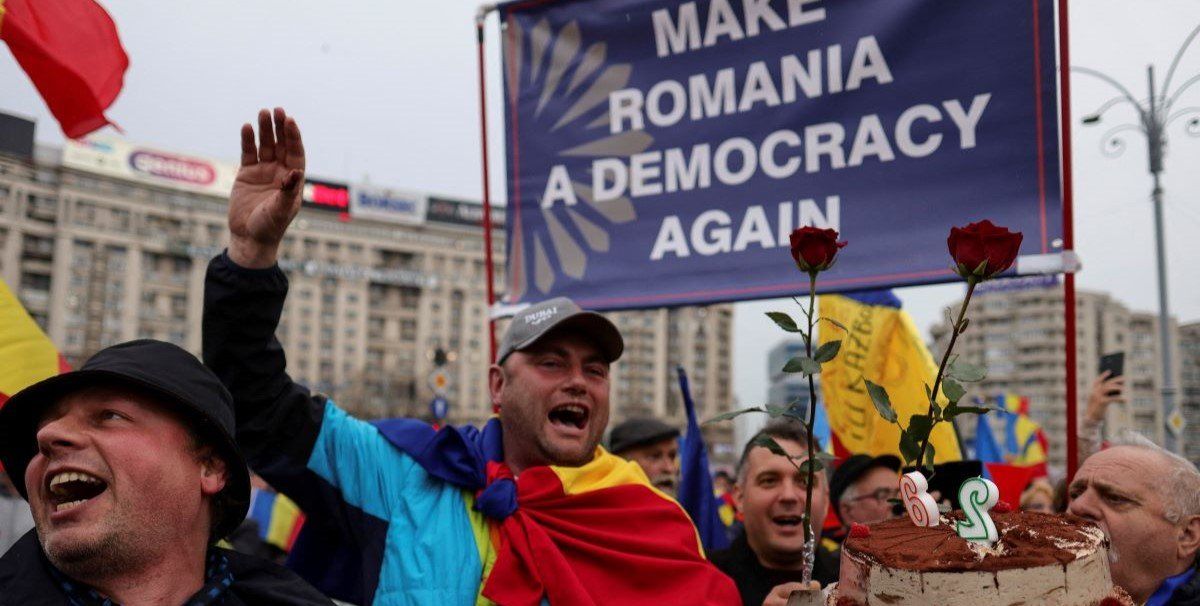Far-right nationalist George Simion won the first round of Romania’s presidential rerun election on Sunday, securing 41% of the vote. Simion, leader of the Alliance for the Union of Romanians, or AUR, is known for his pro-Trump, Eurosceptic stance and opposition to military aid for Ukraine. Simion came in first but failed to reach the 50% threshold needed to win outright. Independent Bucharest Mayor Nicușor Dan came in second with 21% of the vote, edging out centrist Crin Antonescu,and will face Simion in the runoff on May 18.
What led up to this election? The vote is a rerun afterthe Constitutional Court annulled Romania’s November 2024 presidential contest over allegations of Russian interference. Moscow was pushing for ultranationalist candidate Călin Georgescu on social media in November, and though barred from running, Georgescu remains influential – he even voted at Simion’s side on Sunday – and could play a significant role in an AUR administration.
How did Simion succeed – and where would he take Romania? Simion tapped into widespread public discontent with Romania’s political establishment, struggling economy, and skepticism toward EU institutions. His rise could bring Bucharest closer to Moscow, and he has pledged to
end Romanian support for Ukraine in its war with Russia.
